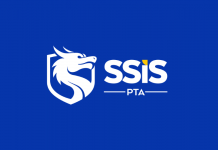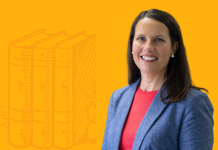UPDATE: Click here to see Ms. Chappuis’ presentation.
You can also view the full slideshow here.
When you hear the word “assessment,” do you think “grades”? If so, you are partly correct. Grades are the “summative” assessments that tell you how well your child is doing overall.
But an equally important part is “formative assessments.” And by understanding how to use these assessments at home to support your child, you can have a positive impact on your child’s learning.
On Monday, February 27 at 8:15 am, guest speaker, author and celebrated educator Jan Chappuis will explain how parents can learn to use the “formative” assessments to support their child’s learning at home. Parents will also learn why BOTH summative and formative assessments are important in helping students learn and grow
Summative vs. Formative Assessment In Simple Terms
Imagine a soccer team who didn’t get any feedback during a game. Although they would likely score goals, they would not do as well as if they would have been coached.
The score at the end of the soccer match is the summative assessment, just like the grades on a report card. It tells you how well your child did overall.
The coach’s feedback is the formative assessment. It helps your child get better while they are learning. Quizzes that do not count toward the grade, mid-semester grades, and peer feedback are examples of formative assessments.
When parents know how to support the “coaching,” ie the formative assessments at home, a student’s learning can be significantly improved, helping them to reach their highest potential.
Jan Chappuis, Bio
Jan Chappuis is an author and educator who believes in using assessments to guide students along the path of their learning journey. Her work focuses on helping educators understand the requirements for assessment accuracy and learn how to implement strategies for the effective use of the assessment process and its results.
Education
- B. A., St. John’s College, Annapolis, MD
- Teaching credential, Western Washington University, Bellingham, WA
- Graduate work, Education Leadership and Policy Studies, University of Washington, Seattle, WA
- Administrative credential, Danforth Program, University of Washington, Seattle, WA
- Coursework from universities in the Northwest in what I needed to learn to teach well


![[AS] Welcome New Faculty, 2023-2024 (May 2023) Head of School Letter header](https://enews.ssis.edu.vn/wp-content/uploads/2022/08/HOS-Letter-SY22-23-218x150.png)

![[AS] Award-Winning Author Minh Lê Visits SSIS!](https://enews.ssis.edu.vn/wp-content/uploads/2023/04/Minh-Le-218x150.jpg)
![[AS] Annual Community Survey](https://enews.ssis.edu.vn/wp-content/uploads/2022/03/2022-Community-Survey-218x150.jpg)
![[ES] Classroom Placement, 2023-2024 – Opportunity for Parent Input elementary school general graphic](https://enews.ssis.edu.vn/wp-content/uploads/2022/07/ES-eNews-Cover-218x150.png)

![[G6-8] Important End-of-Year Events and Dates](https://enews.ssis.edu.vn/wp-content/uploads/2022/07/MS-eNews-Cover-218x150.png)


![[G9-11] Invitation to University Application Policies and Procedures, Wednesday, 8:00 am](https://enews.ssis.edu.vn/wp-content/uploads/2020/10/University-Application-Process-218x150.jpg)
![[G12] US Student Visa: US Consulate to Provide Information, Monday, May 8, 6:00 – 7:30 pm HS eNews Cover](https://enews.ssis.edu.vn/wp-content/uploads/2022/07/HS-eNews-Cover-218x150.png)







